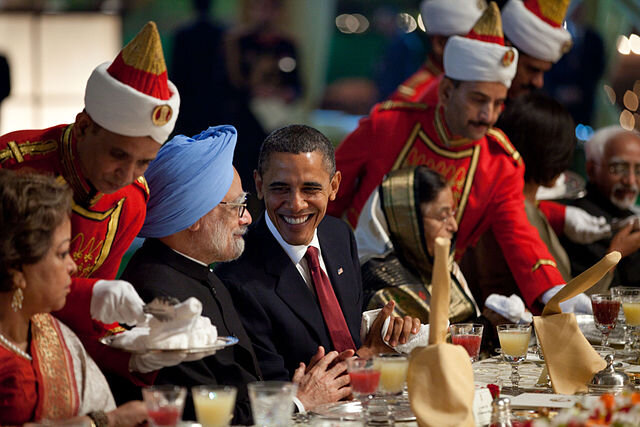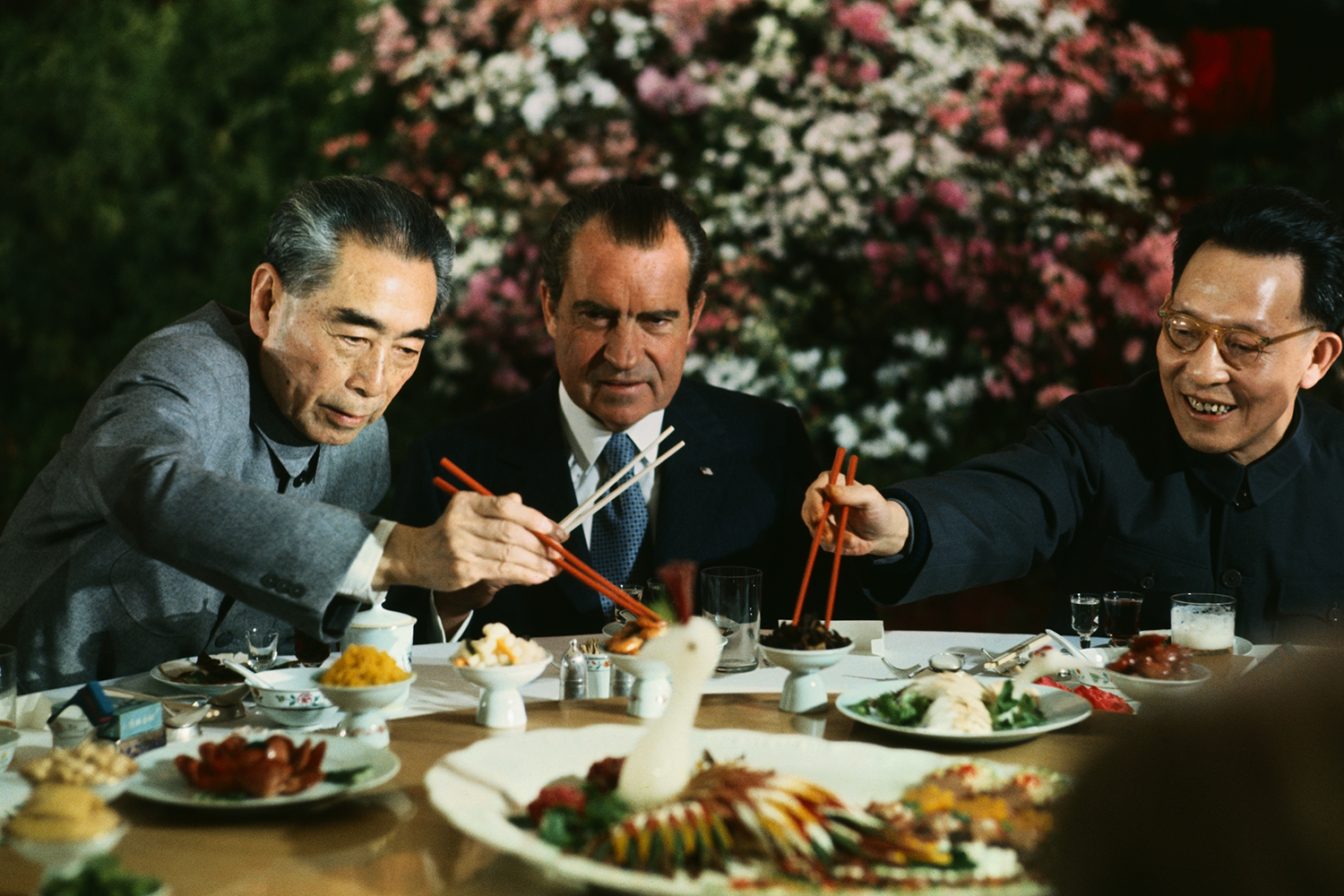By Amalia Theocharidou,
As peace and the banning of all illegal and violent acts of war are being implemented on the global spectrum, we are living in the era of soft power. Soft power concerns the aspect of using peaceful methods that refer to the culture and social lifestyle of an entity, in order to prescribe more prestige and allure. For example, we can consider the promotion of the American lifestyle, Hollywood movies, and the world domination of jeans. In this changing epoch, one can spot another very important domain of the soft power approach. Gastrodiplomacy, or culinary diplomacy. Culinary diplomacy refers to the use of food as a diplomatic tool, in order to shape friendly relations and bring down any barriers between the negotiators. They say that love goes through the stomach, but so do negotiations.

The intimacy that appears at the dining table is actually one of the main reasons we become empathetic. We connect in our everyday life through our simplest form of market with other cultures just from the simple fact that one buys a product grown abroad. We consume pasta from Italy, sushi from Japan, curry from India, which is something that actually bridges the gap and connects us with different places worldwide. It is obvious in our everyday lives, as we choose many times to dine at an Italian or a Chinese restaurant, as well as in the growth and opening of many restaurants with foreign cuisine.
At first, gastrodiplomacy referred just to diplomatic gains. To get close to someone, treat them to food. This is why, in the middle of negotiations, no matter how hard or important the issue is, a relaxing dining session is always a part of the agenda. During these, recipes from the host country are being offered and the officials are invited to try their specialties, as an act of bonding and socially accepting each other. Food actually reflects the ideas, social ties, and beliefs of a nation, which can help the foreign diplomat understand better their needs and interests. For example, the Japanese consider it a great fault to leave your chopsticks directly nailed down on your plate, as they comprehend it as a sign that you’re wishing death upon your convives. This can actually warn an official about the importance of mannerism in Japanese culture. As food is a big part of one’s culture, it is being used not only for a gastronomical cause but also for the promotion of tourism.

As the great importance of food in culture was already mentioned, we can understand how much of a vital element it has become, making it essential for any diplomat to avoid any misunderstandings. An example of the past is when Queen Elizabeth II visited Belize in 1985, in an attempt to offer Britain’s support against some sovereignty threats. During their visit, they were treated to “gibnut”, a rodent that consists of a very famous traditional plate there. Despite the Queen’s efforts to appear pleased, the British media appeared disgusted, referring to how they were “fed rat”, a statement that was considered extremely offensive in Belize (Parasecoli F., 2022).
Organizations like the World Food Program have initiated projects that promote gastrodiplomacy in order to resolve the crisis. For example, with the e-voucher program, people who live in areas where food is difficult to access gain the necessary means to that, in order to cook their favorite traditional dishes. In return, they upload their recipes and stories to the organization’s forum, where they’re accessible to the public, who can also participate in other initiatives in order to raise money (Chapple-Sokol S., 2015).
Food does bring us closer in ways one can’t understand. As we become citizens of the world more and more and as we add international delicacies to our alimentation, it’s only fair to say, that we are what we eat.
References
- How Countries Use Food to Win Friends and Influence People. FP. Available here
- Culinary Diplomacy: The Power of Food as a Tool of Peace. UN WFP. Available here




